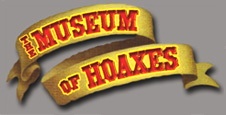The History of April Fool's Day
An illustrated exploration of the tradition of April Foolery
An illustrated exploration of the tradition of April Foolery
6. The 1960s: A Gentler Era of April Fools
Beneath the street pranks of the nineteenth century had lurked an edge of hostility and class tension. The well-to-do gentlemen who were the typical victims of the street urchins' games suffered through them without much enjoyment. But by the second half of the twentieth century, this aggressive style of pranking had given way to a far gentler April Fool's Day humor that reflected a more prosperous and optimistic era. In Europe, the two world wars had ended and countries were being rebuilt. In America, the economy was booming. Children were in schools, not roaming free on the streets. The pranks of this period seemed designed to bring people together in laughter, not set them apart. It's probably no coincidence that two of the most famous April Fool's Day hoaxes of all time, the BBC's Swiss Spaghetti Harvest hoax and Sweden's Instant Color TV prank — both celebrated for their gentle humor — were from this period of history.

April 1, 1963
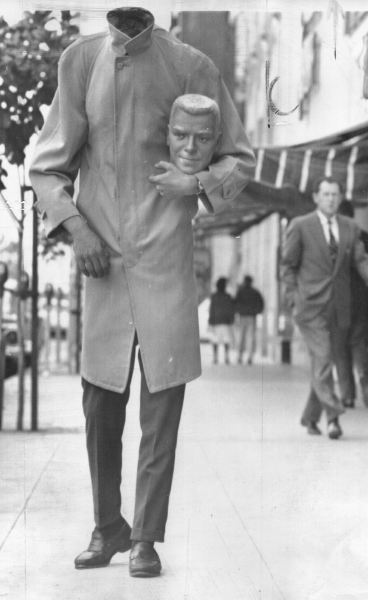
Bob Grove on the streets of Salinas, Calif., April 1, 1964

When Mrs. Rhoda Bell walked into her sixth-grade classroom at Wilder Elementary School in Louisville, KY, she discovered that all her students appeared to have broken arms. April 1, 1966.
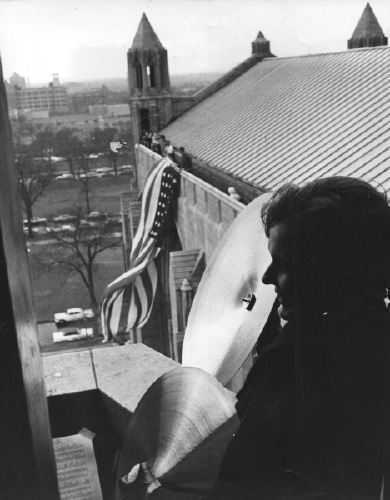
Students at the University of Chicago serenaded the city with a "musical spoof" from atop
Rockefeller Chapel. Shown is Loraine Percy on the cymbals. April 1, 1966.
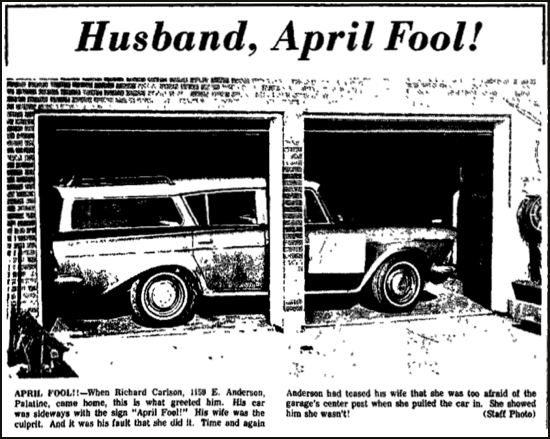
A Chicago wife pranks her husband. April 1, 1967.
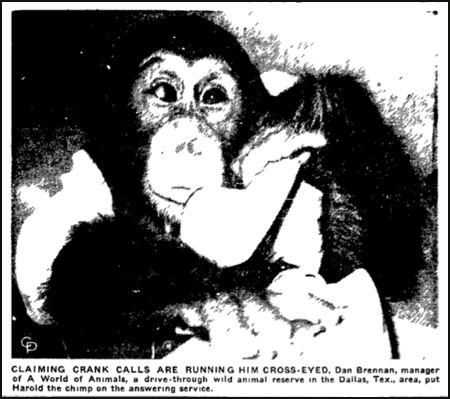
Zoos still received hundreds of prank calls every April first. Sometimes they got revenge
by putting a chimp on the phone, as was the case here. April 1, 1970.
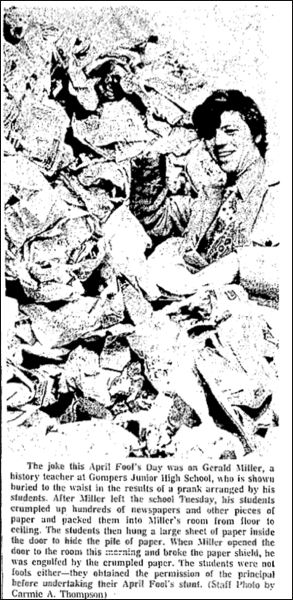
School prank in Madison, WI. April 1, 1970.
But of course, there were still real divisions lurking beneath the surface of society, and by the 1970s these began to be reflected in April Fool pranks. April Fool's Day had never before been a particularly political day, but protesters realized it was a perfect time to protest the foolishness they saw in the world.
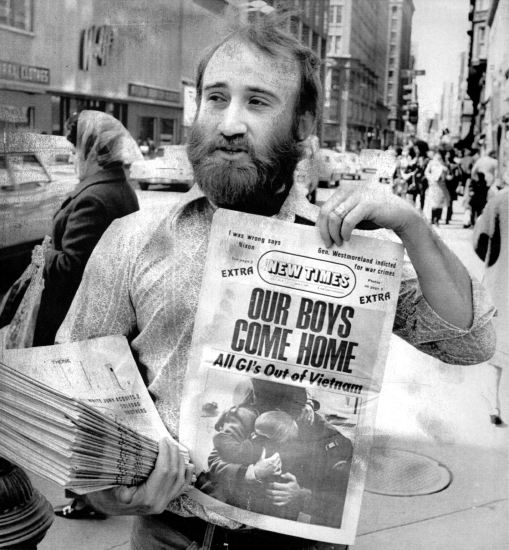

7. The Era of Grand Stunts
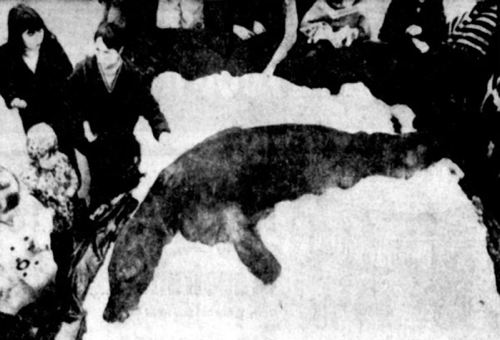


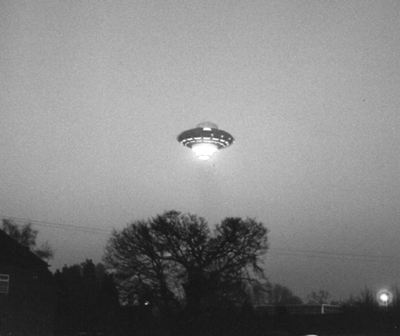

All text Copyright © 2014 by Alex Boese, except where otherwise indicated. All rights reserved.
